第210章 Chapter 4(5)
One of the attentions she had from immediately after her marriage most freely paid him was that of her interest in his rarities, her appreciation of his taste, her native passion for beautiful objects and her grateful desire not to miss anything he could teach her about them. Maggie had in due course seen her begin to "work" this fortunately natural source of sympathy for all it was worth. She took possession of the ground throughout its extent; she abounded, to odd excess, one might have remarked, in the assumption of its being for her, with her husband, ALL the ground, the finest clearest air and most breatheable medium common to them. It had been given to Maggie to wonder if she did n't in these intensities of approbation too much shut him up to his province; but this was a complaint he had never made his daughter, and Charlotte must at least have had for her that, thanks to her admirable instinct, her range of perception marching with his own and never falling behind, she (287) had probably not so much as once treated him to a rasping mistake or a revealing stupidity. Maggie, wonderfully, in the summer days, felt it forced upon her that that was one way, after all, of being a genial wife; and it was never so much forced upon her as at these odd moments of her encountering the as Amerigo called them, under the coved ceilings of Fawns while, so together yet at the same time so separate, they were making their daily round. Charlotte hung behind with emphasised attention; she stopped when her husband stopped, but at the distance of a case or two, or of whatever other succession of objects; and the likeness of their connexion would n't have been wrongly figured if he had been thought of as holding in one of his pocketed hands the end of a long silken halter looped round her beautiful neck. He did n't twitch it, yet it was there; he did n't drag her, but she came; and those betrayals that I have described the Princess as finding irresistible in him were two or three mute facial intimations which his wife's presence did n't prevent his addressing his daughter--nor prevent his daughter, as she passed, it was doubtless to be added, from flushing a little at the receipt of.
They amounted perhaps only to a wordless, wordless smile, but the smile was the soft shake of the twisted silken rope, and Maggie's translation of it, held in her breast till she got well away, came out only, as if it might have been overheard, when some door was closed behind her. "Yes, you see--I lead her now by the neck, I lead her to her doom, and she does n't so much as know what it is, though she has a fear in her heart which. if you had (288) the chances to apply your ear there that I, as a husband, have, you would hear thump and thump and thump. She thinks it MAY be, her doom, the awful place over there--awful for HER; but she's afraid to ask, don't you see? just as she's afraid of not asking; just as she's afraid of so many other things that she sees multiplied all about her now as perils and portents. She'll know, however--when she does know."
Charlotte's one opportunity meanwhile for the air of confidence she had formerly worn so well and that agreed so with her firm and charming type was the presence of visitors never, as the season advanced, wholly intermitted--rather in fact, so constant, with all the people who turned up for luncheon and for tea and to see the house, now replete, now famous, that Maggie grew to think again of this large element of "company" as of a kind of renewed water-supply for the tank in which, like a party of panting gold-fish, they kept afloat. It helped them unquestionably with each other, weakening the emphasis of so many of the silences of which their intimate intercourse would otherwise have consisted. Beautiful and wonderful for her even at times was the effect of these interventions--their effect above all in bringing home to each the possible heroism of perfunctory things.
They learned fairly to live in the perfunctory; they remained in it as many hours of the day as might be; it took on finally the likeness of some spacious central chamber in a haunted house, a great overarched and over-glazed rotunda where gaiety might reign, but the doors of which opened into sinister circular passages. (289) Here they turned up for each other, as they said, with the blank faces that denied any uneasiness felt in the approach; here they closed numerous doors carefully behind them--all save the door that connected the place, as by a straight tented corridor, with the outer world, and, encouraging thus the irruption of society, imitated the aperture through which the bedizened performers of the circus are poured into the ring.